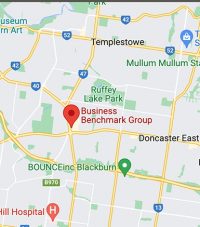A company that has been around for 100 years of trading is a well-oiled machine that nailed the business basics down decades ago. Businesses on this trajectory aren’t worried about when their next sales are coming, they’re focused on creating growth opportunities. It is one of the best qualifications to build a business that lasts many years.
It’s a given that their quote register is filled with ideal jobs at the ideal margin for the ideal customer. This means the work they do is viewed ‘highly valuable’ by the A-grade clients sitting on their waiting list. But value is a tricky thing to get right, particularly perceived value,
Value created and not delivered is of no value. You can have the best ideas, but not delivering them is of no value. Value delivered, but not perceived, is also of no value. People will question your value if you don’t educate them first. Because your value is directly linked to your price tag, a lack of education in this area puts your business in a risky place.
In this article, we’ll look at value through the lens of selling, so you can take steps to sell A-grade customers on repeat.
The Selling Proposition Cycle
Do you often feel like you’re just going through the motions in your business? It’s very easy to slip into ‘business as usual’, and you can easily forget the brilliance that you bring to the table. You solve problems, eliminate frustrations, keep everyone up to speed on where a job is, deliver on time, on budget, plus a bit more, etc.
Business as usual (BAU) thinking keeps you at a lower to mid-pricing level because you’re not pricing your value. Or you fear increasing your prices because you don’t think you provide value reflecting a higher price tag.
There are 3 stages to the Selling Proposition Cycle that will complete the loop and set you up with a list of A-grade customers to build a business, quoting only for your ideal jobs at the ideal margin.
1. Unique Selling Proposition (USP)

A. Choosing the right customer
Why should a potential customer pick you over your competitors? Your USP is what makes you different from the various other electrical contractors, signage businesses, interior designers, and landscapers out there.
Every business needs a USP because it attracts clients. The first reason is perceived expertise. When someone has a problem that needs a solution, do you think they’re more likely to go to the tradie who specialises in fixing that problem day in/day out, or a tradie who takes on various jobs within their sector?
9 times out of 10 the specialists will win the work, because they’re perceived as having more expertise, because they deal with these jobs all the time. A jack of all trades may have the same, if not more, expertise in this area, but it doesn’t come across that way to a potential customer to build a business.
B. Right decision making
The second reason a USP is so important is because it makes selling easier. Once you’ve made a clear cut decision about WHO you’re serving and HOW, all the other noise is blocked out. You now have one message to shout.
Your USP could also be considered your niche – a smaller and specific segment of a market, such as signage for the hospitality sector.
Your USP is NOT about doing things differently than other companies or having a different method of delivering. You can’t afford that as a small business, and your clients don’t care how you get the job done as long as it solves their problem.
C. Doing your ideal job
You need to decide once and for all what your ideal job at the ideal margin to the ideal customer is to build a business that lasts for 100 years. Once you have clarity and confidence around this, your conversion rates will go up, because you know what you’re asking for and why you’re asking your price for it.
Part of your job is to educate your audience about the value you provide, and you can only do that when you’re clear about what that is (your USP). From then on, you can align your USP (value) with your delivery – guaranteed.
2. Emotional Selling Proposition (ESP)

Now that you’ve won the work, you need to continue this cycle to follow through and delivery. At this stage, it’s all about how you make people feel. Customers won’t remember what you did or how you did it, but you can bet they’ll remember how you made them feel.
In a nutshell, your ESP is about being relational. There are 3 steps to fulfil the Emotional Selling Proposition:
- 1 – Show customers that you care – 90% of businesses (including you) are in the business of solving problems. Treat your customers like people with curiosities, apprehensions, questions, etc, and show them that you care. Even if you don’t like them, you must respect them as a client to build a business.
- 2 – Do whatever it takes to deliver on time, on budget, plus a little more – You promised 2 out of 3 of these when you quoted the job. Delivering on-time and on budget is what’s expected, so you won’t be winning any awards for it anytime soon. Delivering ‘a little more’ is what’s going to set you apart and leave customers with a feeling of positivity and gratitude.
- 3 – Always be the best you can be – This is very self explanatory and simple to do. This doesn’t mean perfection! Perfection is a trap that stops you from getting things done and hinders more than it helps. Always strive to be the best you can be, and you’ll be leagues ahead of the rest.
3. Community Selling Proposition (CSP)
If you’ve made it to this stage in the cycle, you’ve delivered the work, followed through on your promises, created a positive long lasting impression, and your client loves you! The CSP is about building a community where you’re known for your ideal job to the ideal customer at your ideal margin.
With this community, all your hard work pays off, and you get the 5 Rs:
- Repeat (work) – You’ve gained the loyalty of past customers, and they’ll return to you for future work.
- Referrals – You have a community of people to contact and ask for a referral. Because your value is so well known in your community, you’ll get higher volume and quality referrals. There are approximately 220 work days in a year. If you asked for one referral everyday, and converted just 5%, that could be an extra 5-6 figures each year added to your bottom line!
- Recommendations – People remember how you made them feel, and you left a lasting impression in stage 2. People will talk about your business on a Friday night when they’re out at dinner with friends. Word of mouth will bring you more revenue.
- Reviews – Social proof is a key piece of any business’s selling proposition, and reviews can do a lot of the heavy lifting for you. Customers will have more motivation to leave you a glowing review, which oftentimes is forgotten about.
- Reputation – you’ll be known as the best business to deliver your ideal job to your ideal customer. Your business will have an A-grade reputation that attracts A-grade customers and A-grade tradies to grow your team.
Complete the Cycle for Business Certainty and Longevity to Build a Business
Once you’ve mastered each of the three stages and completed the cycle, it will continue without much effort from you. Value created, delivered, and perceived builds a waiting list of A-grade customers and a quote register full of your ideal job at the ideal margin. You won’t need to ‘sell’ anymore, because the sales cycle is flowing and doesn’t need to be cranked anymore, it’s consistently flowing.
When you’re no longer worried about when your next job will come along, you can focus on creating growth opportunities to scale your business. You can grow your team, put more vans on the road, move onto larger premises, buy new equipment, increase your reach to new locations, and much more!








